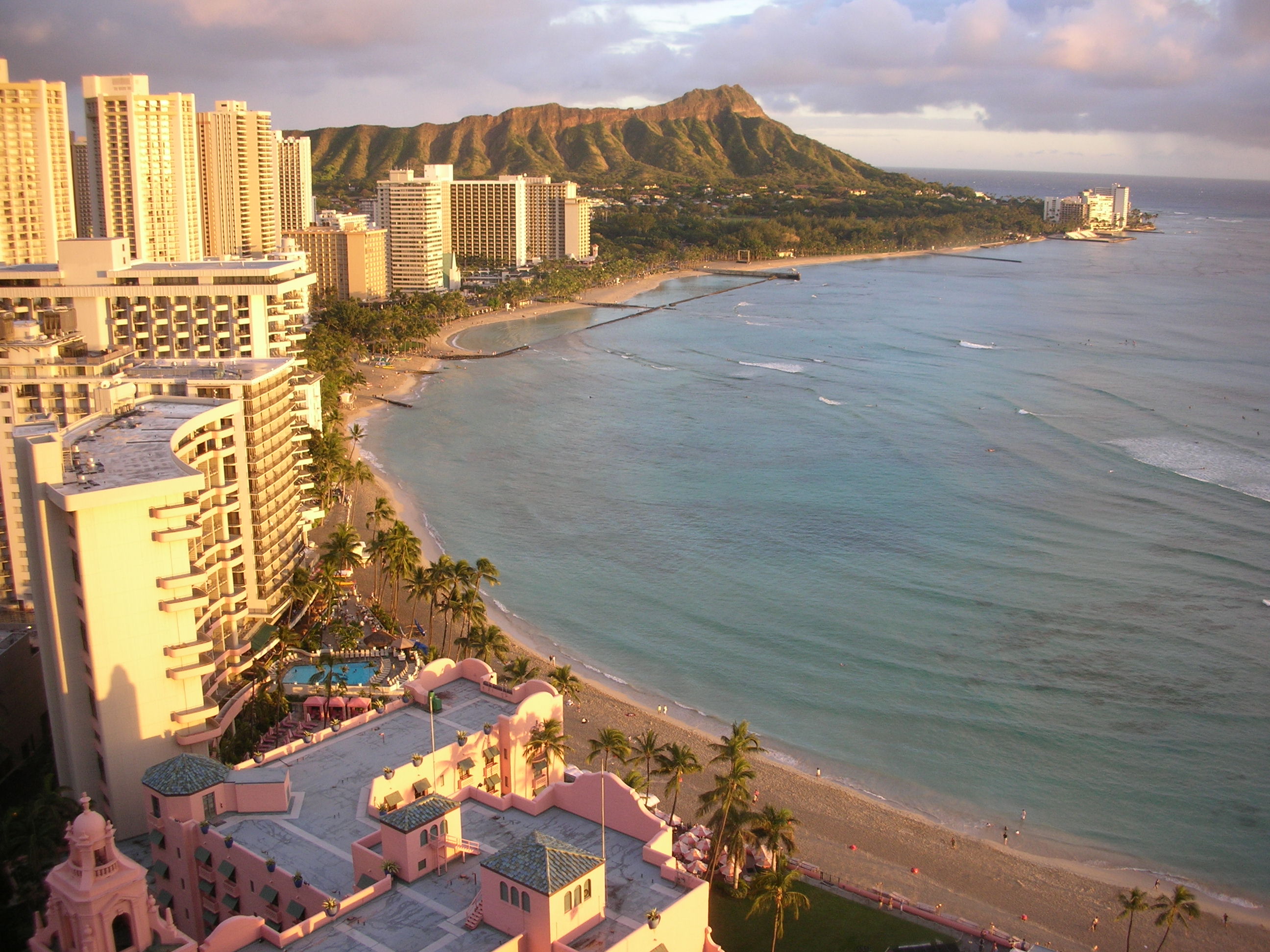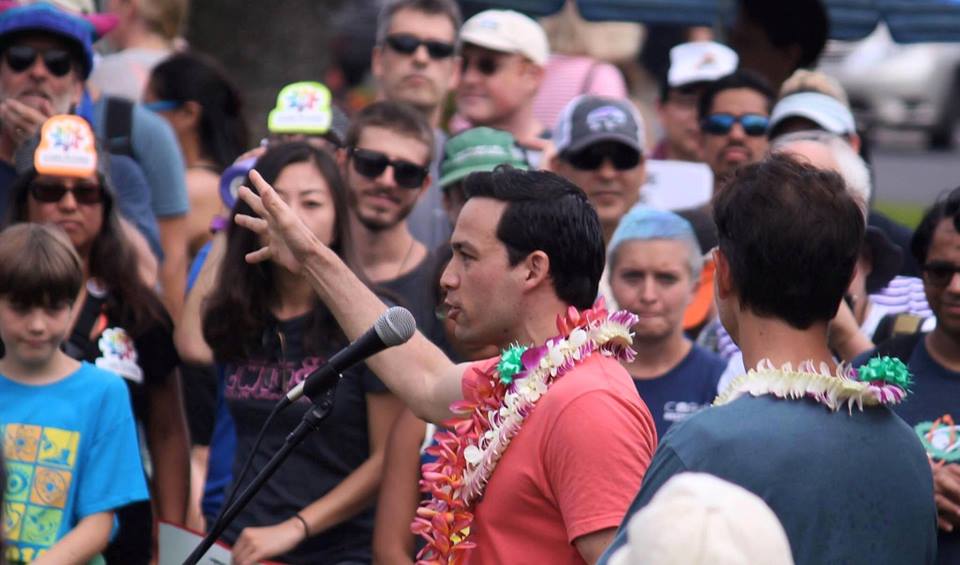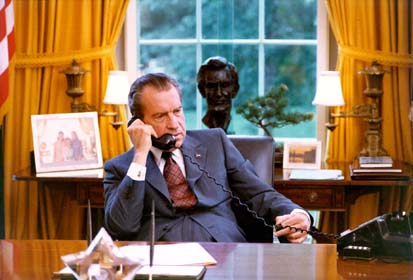Hawaii Considers Universal Basic Income
By:
This week, the Hawaii State Legislature unanimously passed House Concurrent Resolution 89, a measure that declared that all families are entitled to basic financial security.
While it passed with little fanfare in the news media, it could be the first step towards creating Universal Basic Income in the state of Hawaii.
 Wikimedia Commons
Wikimedia Commons
Wait, what's Universal Basic Income?
The idea behind Universal Basic Income (UBI) is that everyone gets an annual—or even monthly—check to prevent them from slipping below the Federal poverty level. Not only would it potentially prevent the myriad traumas that accompany poverty, it could also eliminate some of the bureaucracy associated with current social safety nets, like Temporary Assistance for Needy Families (TANF).
Proponents of the idea also argue that more money in people's pockets could boost small and large businesses—and the economy in general—and encourage entrepreneurship Which is probably why it's gained some notable entrepreneur backers; including Elon Musk, Bill Gates, and Mark Zuckerberg. In a recent Harvard commencement speech, Zuckerberg said that a basic guaranteed income would "make sure everyone has a cushion to try new ideas." And in January, Sam Altman, the president of San Francisco-based startup Y Combinator, announced that he was launching a study of how UBI could work in the U.S.
So, it's like unemployment?
No. The concept of UBI differs from other social safety net programs like TANF and unemployment insurance in that it’s unconditional. That is, you don’t have to be laid off from a job to get it and you can’t get kicked off, if you get a high paying job. UBI would simply give a check to everyone to keep them above the poverty line – currently just under $12,000 annually for an individual—no matter what other income they make. So, yes, Gates and Zuckerberg would get a check, too.
Will the Aloha State start a wave?
State Rep. Chris Lee, who represents the island of Oahu, sponsored the bill and wrote on Reddit that the measure will “analyze our state’s economy and find ways to ensure all families have basic financial security, including an evaluation of different forms of a full or partial universal basic income.”
Lee told ATTN: that many details need to be worked out, and that the resolution was a method of starting the discussion.
“This is the first step toward addressing inequality in the state and the potential for mass unemployment stemming from automation,” Lee said. “If we do this right, this can be not just a safety net but an opportunity for people to be more entrepreneurial in their career choices.”
He added that lawmakers would be gathering over the summer and fall to identify what questions they need to ask and how to focus their financial analyses before they decide on policy options on how the state would implement UBI.
There is some recent precedent for Hawaii's move towards UBI. In 2015, Alaska developed a program to give all residents about $2,000 per year from dividends from oil exploration and drilling.
 Rep. Chris Lee
Rep. Chris Lee
Why now?
The push to provide UBI has gained steam lately due to promises—or threats—of automation taking over more American jobs. UBI supporters like Lee have become more vocal about considering it as a firewall against mass unemployment.
"We've been hearing about the coming of driverless vehicles," Lee tells ATTN:. "Well, what about the people who drive as a profession? What about the other jobs? Millennials understand this means less opportunity. A lot of them see the American dream as dead."
It's not a new idea.
Though it may be gathering steam now, the concept of a social safety net through guaranteed money is not a recent development. In his 1516 political treatise "Utopia", Sir Thomas More proposed a guaranteed income to stop petty theft. And in Thomas Paine's 1797 pamphlet, "Agrarian Justice," he proposed a one-time payment to every person at age 21, and annual payments to everyone over 50.
More recently, President Richard Nixon—hardly a lefty utopian—proposed unconditional income for poor families, but Congress gave it a thumbs down. Even libertarian economist Milton Friedman supported UBI, saying it would be more efficient than existing government social safety net programs.
 wikimedia commons
wikimedia commons
As support by Nixon and Friedman suggests, UBI proponents and detractors don't always fall neatly into the expected ideological and political camps. Some non-partisan economists worry about how to pay for UBI, even if they support it in theory. In 2013, Economist Max Sawicky made a liberal case against UBI, saying traditional ways of minimizing income inequality – raising the minimum wage, restoring Clinton-era welfare, and boosting the power of unions are “more in keeping with our current system and our political culture.” And when the IGM Economic Experts Panel asked economists to share their opinions about UBI last year, the response was generally negative.
But Jason Burke Murphy, a professor of philosophy at Elms College and head of the U.S. Basic Income Guarantee Network, told ATTN: that Hawaii lawmakers are right to start the ball rolling.
“The gig economy already is disruptive,” he says. “We’re told that the economy has recovered from the great recession, but studies show people are feeling much less secure.” Murphy added that a national basic income plan would be much more efficient than a patchwork of state plans, but that “you have to start somewhere.”
